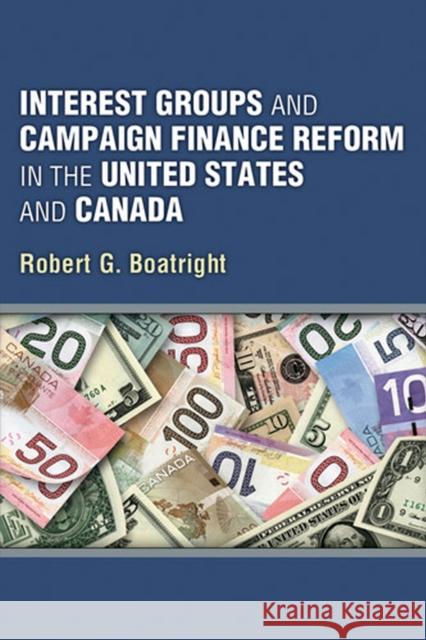Interest Groups and Campaign Finance Reform in the United States and Canada » książka
Interest Groups and Campaign Finance Reform in the United States and Canada
ISBN-13: 9780472051441 / Angielski / Miękka / 2011 / 264 str.
"This book is a valuable contribution to the study of campaign finance in the U.S. and Canada. Its comparative analysis highlights the role of institutions in shaping group activity, the extraordinary role of interest groups in American electoral politics, and the inherent difficulty in regulating group activity without stifling debate. It belongs on the shelf of anyone interested in election finance law."
---Lisa Young, University of Calgary"Boatright finds the right balance of perspective and real-world application to make this a truly informative and valuable read, even for those of us who play in the political arena. He doesn't suffer from the myopia of political correctness that afflicts so many who write on campaign finance."
---Gregory Casey, President and CEO, Business-Industry PAC (BIPAC)"A meticulously researched book that political scientists will find to be a serious contribution to the literature on campaign finance and interest groups."
---Peter Francia, East Carolina UniversityIn the early 2000s, the United States and Canada implemented new campaign finance laws restricting the ability of interest groups to make political contributions and to engage in political advertising. Whereas both nations' legislative reforms sought to reduce the role of interest groups in campaigns, these laws have had opposite results in the two nations. In the United States, interest groups remained influential by developing broad coalitions aimed at mobilizing individual voters and contributors. In Canada, interest groups largely withdrew from election campaigns, and, thus, important voices in elections have gone silent. Robert G. Boatright explains such disparate results by placing campaign finance reforms in the context of ongoing political and technological changes.Robert G. Boatright is Associate Professor of Political Science at Clark University.Cover photo: (c) iStockphoto.com / alfabravoalpharomeo











